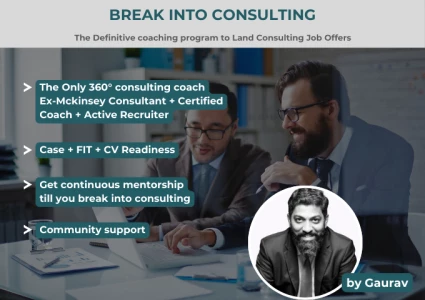As a consulting coach, I often get asked about the typical work day hours at major consulting firms like McKinsey, Bain, BCG, and others. The reality is that consulting is a demanding profession, and long hours are to be expected, especially early in one's career. However, it's important to understand the nuances and expectations around the work schedule to better prepare yourself.
First, let's start with the baseline – a standard work week in consulting is generally around 60-70 hours. This can vary depending on the firm, the specific engagement, and the phase of the project you're in. During busy periods, like the final weeks leading up to a major client presentation, it's not uncommon for consultants to put in 80-90 hour weeks, or even more in extreme cases.
That being said, the work schedule is rarely a rigid 9-to-5 or even a consistent number of hours per day. The nature of consulting work often demands flexibility and the ability to adapt to changing client needs and project timelines.
Here's a more typical breakdown of what a work day might look like:
1. Early morning: Many consultants start their day early, arriving at the office or client site between 7-8 am. This allows them to get a head start on preparing materials, responding to emails, or attending early team meetings.
2. Core working hours: The "standard" workday typically runs from 9 am to 7 pm or later. During this time, consultants are engaged in a variety of activities – conducting analysis, participating in team meetings and workshops, developing presentations, and collaborating with colleagues.
3. Evening hours: After leaving the office or client site, consultants often continue working from home or while traveling. It's common to spend several more hours responding to emails, refining deliverables, or preparing for the next day's activities.
4. Weekend work: Depending on the project phase and deadlines, consultants may need to dedicate a portion of their weekend to catching up on work or preparing for the upcoming week.
It's important to note that while the hours can be demanding, top consulting firms also emphasize the importance of maintaining a healthy work-life balance. Firms encourage consultants to take time off between projects, and many have policies in place to ensure reasonable scheduling and time for personal commitments.
Additionally, as consultants progress in their careers and take on more senior roles, they often have more control over their schedules and can better manage their workload.
The key to succeeding in this environment is developing strong time management skills, learning to prioritize tasks effectively, and being comfortable with a certain level of ambiguity and unpredictability in your schedule.
If you're considering a career in consulting, it's crucial to have a realistic understanding of the time commitment involved. While the hours can be grueling at times, the work is also incredibly rewarding, and the experiences and skills you'll gain are invaluable for your long-term professional growth.
What are the typical work day hours at a major consulting firm?



Hi Frank
as mentioned by Bill, working hours depend on the geography. In Dubai, Singapore and Southern Europe hours are usually longer (my experience in Italy was 9am-11pm Mon-Thu, 9am-8pm Fri and 70-80% of weekends with some working activities). Hours also depend on the type of project (on average, the shorter the project, the longer the hours, with at the extremes due diligences and last minute proposals).
Below you can find some tips to better organize your time and manage your relationships, given the challenges of the job:
- Allocate the time for what you need to do one week in advance. I recommend that you avoid daily allocations, as a weekly calendar is better to define the ideal free slots for calls/chat/dinners with people you want to keep in contact with. This will allow you to avoid to over promise things and align with both your job and personal needs.
- Clarify at the beginning of the project which are your personal/family needs with your supervisor. If you need to be free on a certain time or day on the weekend, the beginning of the project is the ideal time to speak. You cannot be sure that you will not have to work on your requested free time, of course, but it will be easier for you to negotiate it when needed
- Anticipate to friends and significant others your needs and schedule and define with them the best time to keep in touch. As before, it is better to make it clear you will likely not be available on certain days, in particular when strict deadlines are in place. They may not like the idea, but it will allow you to avoid conflicts later on.
Best,
Francesco

Frank,
I am aligned with what other said in terms of "there is no typical" day. That said for MBB in US what I have experienced and observed for Consultant level is (if local):
- Mon - Thu 8am - 6.30pm at client, 8pm - 10pm from home/office
- Fri 8.30am - 5pm with 70% client work and 30% office work (expenses, training, etc)
- Weekend 1 hour catch up Sunday night to prep for the week
If you are on travel case plan to be at client at 10-11am on Monday morning and leave client on Thursday afternoon around 3pm.
Again as other said you can have more or less intense cases vs. the median one described above and varation can be pretty significant (+50% or -25% hours vs. above) with added weekend work.
Hi Frank,
There are no typical work day hours at a major consulting firm. Sure, on your contract, you may have a mention of an estimate of the total number of hours you can expect to work in a given year, however, the time you'll spend working at a major consulting firm will vary immensely.
For example, at McKinsey Dubai, the average workday lasts about 12 hours/day, with some consultants working even longer than that. You should also expect to work on week-ends (either entirely or partially), depending on how urgent the engagement you'll be working is. You will also have days where you'll be working less than 10 hours/day, especially if you're not staffed on an engagement, are in training, helping in recruiting and so on.
Long story short, consulting (especially at MBBs) is not a 9 to 5 job and most applicants are fully aware of how temporally taxing a career in consulting is.
Best,
Bill

Hi A,
it's a very general question. It always depends on o the specific project. I can say regarding this that consultancy start his working day at 8.00-9.00 AM, depending on the office and the project. And end up working at 8-9 PM, sometimes until midnight, sometimes even 1-3 AM.
But it highly depends on the workload and the basis. Therefore, it's really hard to generalize
Best,
André

Exact hours depend by region and firm.
In general, you will work Monday-Thursday entire days (incl. evening) and Friday until 6-7pm when you are staffed on a project. Weekends are generally free.
Hopefully this helps!
Jorn
Hey Frank,
This changes so much between geographies and projects - my experience ranged from weeks with <50h of work (Australia) to 120h+ (in Southern Europe).
Btw, for someone who is just caring about lifestyle, I do really recommend Australia, by far the best of all locations.
Best
Bruno

Hi!
To add on top what´s been said, it depens a lot on:
- Geographies: some offices have terrible fame, such as Madri or Lisbon
- Engagaments: this can be accountable of a +/- 50% of time increase
Cheers,
Clara

HI there,
just an update w/ ranges I have seen in south Europe BCG across 6 years of activity. Those are average of different individuals - the spread person to person can be somewhat significant
1) Average Project
- Mon - Thu: 9.00 a.m. - 11 p.m.
- Fri: 9.00 a.m. - 7 p.m. (in office)
1-2h weekend work (especially if PL and beyond)
2) Burner Project (e.g. short DD w/ non experienced team/managers, Short Strategy case, hard client, hard MDP)
- Mon - Thu: 9.00 a.m. - > 1a.m.
- Fri: 9.00 a.m. - >8 p.m. (in office)
> 5h weekend work on 100% of weekend
3) Relaxed project (e.g. long PMO with established client relationship
- Mon- Thu: 9.00 a.m. - < 7-8 pm
- Fri: 9.00 a.m. - < 5 pm
No weekend work
Just a drop in the ocean of variability - but perhaps one helpful data point

Hi there,
an ever-green question - highly depends on the project, geography, company, project leadership, client etc. I personally experienced a full spectrum from 35 hour weeks to 100 hour weeks.
In general, it's fair to say that consulting hours will go way beyond a standard 9-5/6 on average and that you can expect way higher intensity (high quality & quantity expectations, tight deadlines and iteration cycles) than in most other industries.
Regards, Andi

Hi,
I largely agree to the answers given. It is difficult to provide a general answer to this question since it depends on a few factors like
a) Team and Project Leader you are working with
b) Country you are working in
c) Client aspiration/experience to work with consultants
d) Your personal working style and effectiveness
Based on these four factors your hours can vary significantly. I have made the experience that d) your personal working style and effectiveness is the major driver for working hours. So if you have clear principles and learn to work effectively you can have a reasonable lifestyle despite tough projects.
Best,
Jan-Phillipp
Hi Frank,
I agree with the previous comments, geography is a big factor. Besides Australia, The Netherlands has a reputation for good lifestyle, too.
The type / length of the project matters a lot as well. If you work on a 3-4 weeks long due diligance, you'll likely won't go to bed before 11/midnight. On the other hand, if the project is a 5-6 months+ implementation study, you'll have a much higher chance of a more balanced lifestyle (still not 9 to 5).
During my 3 years at McKinsey, I hardly remember any occasions when I had to work at the weekend, though.
Best,
Réka

The work hours at major consulting firms like McKinsey, Bain, and BCG can be demanding and often vary depending on the project, client, and office location. Here's a general overview:
1. Core Working Hours: Consultants are typically expected to be in the office during core working hours, which can vary but often fall between 9 AM and 8/10PM. This is when team meetings, client interactions, and collaborative work take place.
2. Project-Based: Consulting is project-driven, and hours can fluctuate significantly based on project needs. During busy periods, such as strategy development or client presentations, late nights and weekends might be required.
3. Travel: Consultants often travel to client sites, and travel days can be long. Travel days may start early in the morning and end late at night, depending on the distance and client requirements.
4. Flexibility: Consulting firms are increasingly emphasizing work-life balance and flexibility. While some periods may be intense, firms also encourage downtime and have policies to support a sustainable work schedule.
5. Client Expectations: Work hours can also depend on client expectations. Some clients may have strict schedules, while others might allow more flexibility.
6. Career Level: Junior consultants may work longer hours as they gain experience and build their skills. As you progress in your career, you may have more control over your schedule.
It's important to note that consulting can be demanding, but firms have made efforts to create a more balanced work environment. Be prepared for variability in your work hours, and remember that a consulting career can offer valuable experiences, skill development, and opportunities for advancement.
If work-life balance is a critical factor for you, it's a good idea to discuss this during the recruiting process and inquire about the specific policies and expectations of the office you're interested in joining. Different offices and regions within consulting firms may have varying cultures and work-hour norms.














